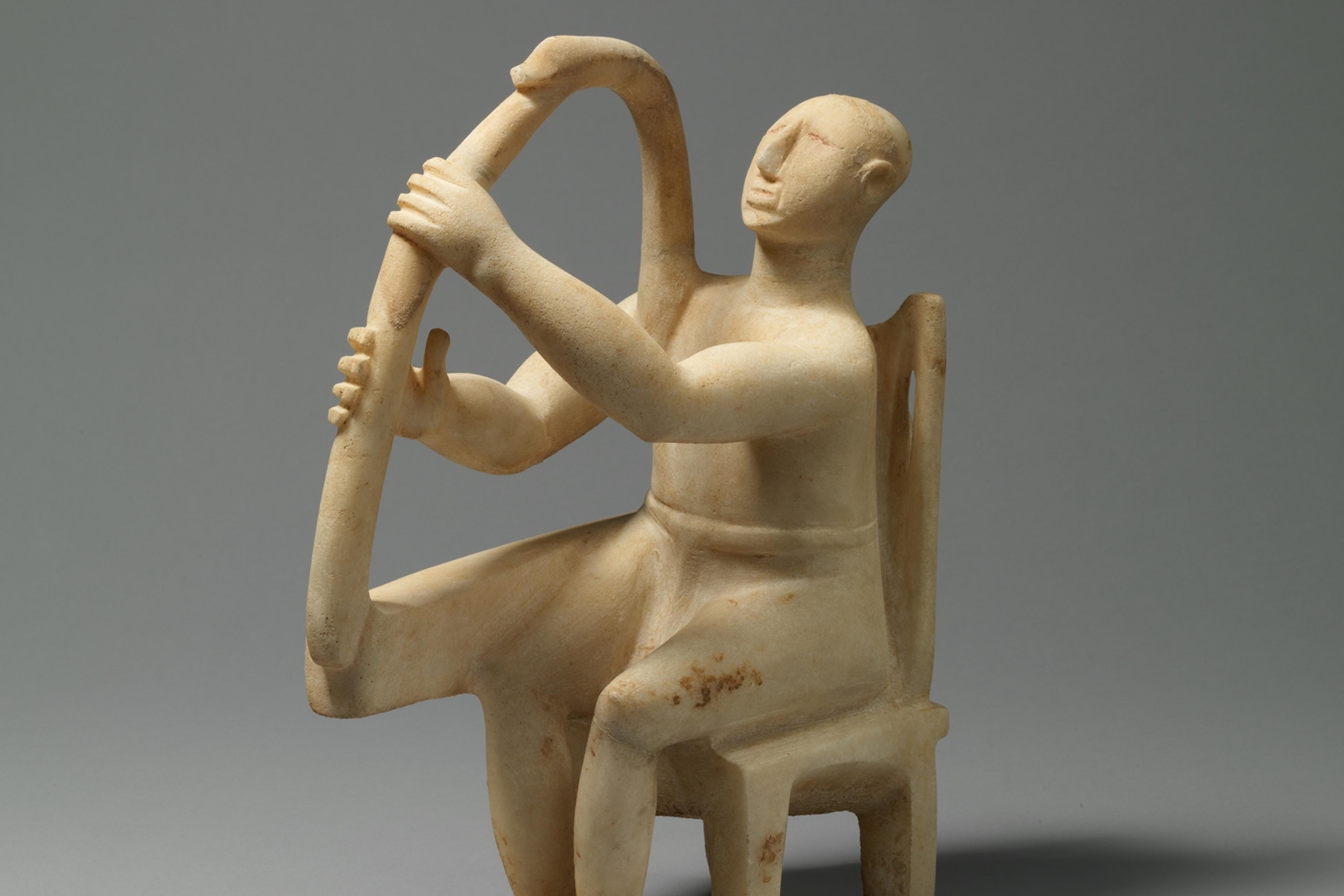Put yourself in these shoes: you’re working very long hours at a highly stressful job. You work so much that you lack the time to recharge your batteries or to access the resources you need to deal with the unrelenting stress you’re experiencing. Weeks go by, and you start to notice a shift in your thinking. Once benign objects, such as cameras placed along highways, take on special meaning, and you begin to feel convinced that you’re being spied on. Sounds become perceptible in the absence of any sources. You feel like nobody will ever love you again. For months, you spiral deeper into what feels like a personal hell – until you reach a breaking point and seek help.
Then, somehow, you begin to heal. During this process, you start reflecting on what happened, what went wrong, and what you want your life to look like going forward. You decide to spend less time working and more time paying attention to the things that matter to you. You start rethinking who you want to be, the importance you place on relationships, and the social roles you wish to occupy so that they are healthier and in greater congruence with what you think is important. You have suffered, and you still struggle with what happened, but you can sense a light in the darkness of your experiences.
In a study that one of us co-authored, someone who had experienced a first-time episode of psychosis described a similar change in perspective:
I think that who I am, and my sense of self right now, is somebody who is a lot more confident, is a lot stronger, and values everything that makes my life possible a lot more than I used to. Because now I know what the alternative is, and the alternative is having … constant doubts as to whether or not I deserve to exist, based off the depression that came up … And that means that … if I didn’t want to be here, I wouldn’t be here, so I should have that mentality going into everything that I do.
These changes can fall under the construct of post-traumatic growth, which is defined as the positive, veridical psychological changes that sometimes follow a negative event, adversity or trauma. Such changes represent fundamentally new ways of existing and relating in one’s world, rather than going back to how one was before the adversity. They can include developing a stronger sense of self, improved relationships with others, a new direction in life, a greater appreciation of life, or spiritual or existential growth. Evidence of post-traumatic growth has been observed across a range of adversities, including physical illnesses (eg, cancer) and natural disasters. Yet this concept has traditionally gone unexplored in research on psychosis.
That has recently been changing, with accumulating evidence indicating that people might experience post-traumatic growth following a psychosis, too – both those who have had a first episode of psychosis as well as those who have experienced psychosis more than once. Researchers of post-traumatic growth tend to assess its occurrence using questionnaires such as the Post-traumatic Growth Inventory (which asks about one’s agreement with statements such as ‘I established a new path for my life’ and ‘I have more compassion for others’). Thus far, only one study (the aforementioned paper that one of us co-authored) has examined the commonness of post-traumatic growth among people who have had a first episode of psychosis; most, though not all, participants reported experiencing some degree of post-traumatic growth. Another study involving interviews with a small group of people, including follow-up interviews after about a year, suggests that such growth experiences after an episode of psychosis can persist over time.
Studies are also giving us a better picture of what it’s like to experience post-traumatic growth after psychosis. Some people might feel more accepting of themselves, more authentic, grounded and confident about making decisions that are aligned with their personal values and aspirations. Others may develop more honest, open and loving connections with friends and family members – as in the case of a research participant who said:
I used to get mad [at] my mother a lot [before psychosis] … I used to talk to her in a very rude way. I don’t anymore.
Conversely, some might decide to end relationships with people they deem unhealthy to be around.
New life directions after psychosis, research suggests, can include pursuing educational or work opportunities that better align with one’s passions and values, exploring new hobbies, or engaging in artistic practice or storytelling. One person recalled:
From the first time I got to the hospital it was like I wanted to tell my story and to get my story out there, and [to find] different ways to do that and different ways to express myself …
Some report feeling a greater appreciation for life, too, which might involve gratitude for being alive and making it out of psychosis as well as feeling hopeful for the future. Finally, there may be forms of spiritual or existential growth after psychosis, such as feeling closer to God or praying more; or one may shift from certain religious or spiritual practices to different ones.
Some people who have gone through psychosis find value in their experience by taking on new, meaningful roles. One example is the role of ‘expert by experience’, someone who uses their experiences of mental illness or disability to help train mental health professionals, shape research or influence policy. People can also draw on their experience of psychosis to help others heal as peer or mutual-support workers, or may use wisdom derived from their suffering to help their communities.
Through roles such as these, people who have experienced psychosis get to make a meaningful difference, which could lead to additional positive changes in their sense of self. As Alison Bryant, a service user advisor and expert by experience, put it in a review that one of us co-authored:
I once had only a tiny seed of hope, now this has blossomed, giving me a new sense of identity, purpose and direction.
Not everyone who lives through adversity reports post-traumatic growth. So what makes it more likely that someone who has experienced psychosis will see such positive developments? We’re beginning to get a better sense of this as well.
Potential facilitators of post-traumatic growth after psychosis, gleaned from interviews with those who have experienced it, are varied. Among these are:
- personal resources, such as finding ways to cope with stress or actively trying to frame one’s experiences of psychosis as positive;
- social resources, such as having loved ones to rely on for instrumental and emotional support;
- mental health services that provide recovery-oriented care, whereby people are treated with humanity, dignity and respect;
- belonging to communities of people with shared experiences of psychosis (eg, peer support groups) or those based on other aspects of people’s identity and passions (eg, arts-based community organisations); or
- spiritual resources, such as praying and attending religious institutions.
While some of these resources might be present prior to psychosis and accessed during and after its occurrence (such as the support of loved ones), other resources may be newly acquired during recovery (such as joining peer communities).
There are also potential barriers to experiencing growth after psychosis, though there is a paucity of research directly exploring them. One study has shown that clinicians might be less likely to observe post-traumatic growth in people who have experienced psychosis than those people are to report it themselves. This suggests that some clinicians may not believe that post-traumatic growth occurs in those to whom they provide care. A clinician who exclusively uses a biomedical explanatory model of psychosis might see someone’s experiences of it solely as symptoms of illness without potential meaning or value. They may also assume that a client simply lacks insight into their condition, and reject a client’s assertions of post-traumatic growth even after they have recovered from an episode.
Some people who have experienced psychosis insist that those experiences provide insight into their path to recovery and can be a catalyst for improved priorities, lifestyles, self-insight and wellbeing. Some continue to perceive aspects of their altered state during psychosis as valuable, and assert that the altered state itself helped them see outside of limiting thoughts and beliefs or enhanced feelings of connectedness. Having a personally meaningful experience reduced to an illness category and rendered devoid of meaning can be experienced as harmful, and hinder growth and agency.
Imagine that, during your recovery, you ask to slowly reduce your medication. The clinician reminds you that you have a serious and chronic illness that could get worse over time if you don’t maintain treatment compliance. They ignore your assertions that you’ve learned to prioritise your wellbeing more than before psychosis, and that you feel a deeper sense of purpose, gratitude and connection to the people in your life. You get the message that your ideas of positive growth after psychosis are unrealistic, and you are treated as an unreliable narrator of your own experience, regardless of whether you show signs of relapse or not. Your anxiety increases and you fear you’ll never be able to trust yourself. You doubt the growth and positive gains you’ve made, and you limit your goals and aspirations for the future.
Now imagine a different version of this story: you’re told that your psychosis could be an understandable response to trauma, extreme stress and/or social circumstances, a perspective taken by approaches such as Open Dialogue and the Hearing Voices movement. This is consistent with evidence that highly stressful life experiences could help explain why some people are at high risk for psychosis. You’re allowed to discuss and explore the content of your psychosis, and perhaps how your fear of being spied on and being unlovable have given you insight into the hostility you felt at work and the unreasonable expectations within your family – highlighting things you want to work through in therapy. You don’t want to go through another crisis, so you’ve made lifestyle changes and set healthier boundaries. The clinician acknowledges the positive changes in your life and your hard-earned gains. You begin to trust yourself and your sense of reality again. You know that, if you experience another episode, you will be better supported, and that recovery and growth are possible.
The narratives that patients absorb about their distress, particularly an experience so intertwined with identity as psychosis, can either magnify bleak perceptions of limitation and expectations of chronicity or foster opportunities for growth. Post-traumatic growth doesn’t happen for everyone, and it should not be treated like a requirement, adding to the burden on people in recovery. But by acknowledging the possibility that growth can occur after psychosis, as after other forms of adversity, we can support these individuals in a way that encourages positive self-development and validates their experiences.








